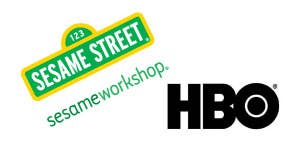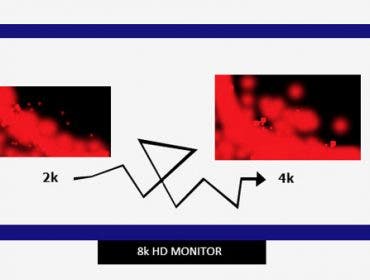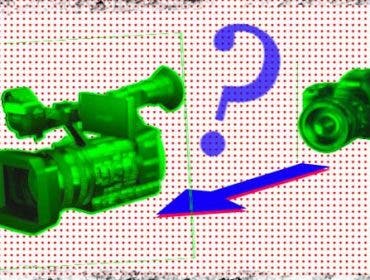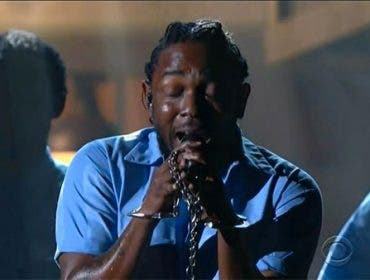
Yesterday, industry trade rag Variety announced a new partnership between Sesame Workshop and HBO. It signifies a major transition not just for a company that has been so closely associated with Public Television, but for the audience of its properties as well. But let’s try to wrap our heads around this first: since 1969, “Sesame Street”was the go to television program for all kids under the age of eight. It has entertained literally generations living through the Vietnam War, the MTV addled 80s, 9/11, smart phones and the rise of internet culture. It has continued to persevere for over 40 years, a run that is bested only by a smattering of Sunday news programs and afternoon soap operas. According to the article, Sesame Workshop (formerly The Children’s Television Workshop) managed to subsist on a budget where only 10% was provided for by PBS. The rest was collected from licensing and DVD sales (and being a not-for-profit, the organization most likely accepted some tax exempt donations as well).
Thanks to the ever increasing popularity of streaming services, portable devices with HD/LCD monitors and what have you, at least a third of Sesame Workshop’s revenue would evaporate right there. We all know about the state of the DVD industry. That and Bluray have become a niche staple for the discernable completist only. Which is a given during an era where entire video and DVD rental chains have closed shop overnight. Technology has encouraged the need to have access to anything at anytime. To the extent it’s become a hassle to carry that DVD player wherever you go.
And why even bother playing a disk while at home? Just turn on your Smart TV and select a title that’s readily downloadable before it would be released in DVD form.
This is why the partnership with HBO makes so much sense. Yes, audiences were exposed to a free, unique kind of education taught by the likes of a counting count and a cookie eating monster. The only thing you had to pay for was the television set to view it on. And yet joining the likes of a pay-for-service cable outfit could ostensibly ring alarm bells everywhere; this is the sudden commercialization of Public Television! What was once “free” is no more. The deal does allow “Sesame Street” to continue to air on PBS. But only nine months after it has aired on HBO. That means PBS will be showing a lot of reruns for over half a year until the new episodes kick in.
If this tells us anything, it exposes Sesame Workshop’s need to change their business model as the old one has become unsustainable. If you go to the PBS Kids website which acts as the de facto online residence for the Sesame Streetshow, only four episodes are available online. In contrast, there are many, many short clips featuring popular moments and celebrity appearances. By collaborating with HBO, Sesame Workshop not only stands to benefit from a new stream of revenue, but they can take advantage of HBO’s resources and infrastructure as well. I think I need to break this down:
• HBO plans to air twice as many episodes in a season than has PBS.
• Sesame Streetwill gain further exposure through HBO’s On Demand and web streaming services.
• HBO will also air other Sesame Workshop properties like “Pinky DinkyDoo” (yeah, I don’t know this one, either) and “The Electric Company”(“heyyyy youuuu guyyyyysss!!”).
• No doubt HBO will provide Sesame Workshop, specifically “Sesame Street”with a brand spanking new website as well.
• Episodes of “Sesame Street”will most likely be viewable on HBO’s website right after they’ve aired on TV.
• “Sesame Street” will continue to air on PBS, albeit nine months after each episode has premiered on HBO.
This appears to be very exciting for Sesame Workshop while portending the death knell for Public Service Television as well. But this also says a lot about how we’ve changed as viewers of content. The resources and benefits afforded by HBO isn’t the only factor driving Sesame Workshop’s plan. Their decision is reflective of how we’ve evolved as media consumers and not in spite of that fact. Netfix, Hulu and Amazon have changed the very idea of what television programming can be. It has popularized “binge watching,” where you don’t have to wait a full week to watch the next episode of your favorite show. The whole concept of a Fall or Summer season has been rendered moot. And everything is viewable from the comfort of your own home or on a tablet as you commute to work every day.
YouTube has given rise to some very popular programming created by amateur filmmakers and on camera raconteurs. While this is a phenomenon in of itself, it happens to be enormously successful (for some at least) as made evident by events like last month’s VidCon (which I talk about here). How this connects to today’s news regarding Sesame Workshop rests in how we access entertainment today. Because “Sesame Street” may never need to be seen on TV in order to sustain its success. HBO’s many platforms for digital exposure insures that.
Having observed the viewing habits of this generation of kids (I have a niece and two nephews)I’ve noticed how they view their favorite content on smart phones and portable devices. And I can’t imagine it’s all that different anywhere else. Jim Henson, the creator of “Sesame Street’s”iconic characters, was a forerunner of puppet and animatronic technology. One can only guess what he would think of the possibilities surrounding today’s digital landscape.





